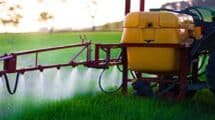Demand for agriculture pumps may go up as more rural areas get electricity.
CRISIL Ratings said on Thursday that the demand for agricultural pumps in the country will go up this fiscal year because more rural areas are getting electricity and farmers are feeling good because the monsoon was normal and the rabi season was good. This will lead to 8–10% growth in revenue for the companies that make agricultural pumps.
Operating margins will go up by up to 100 basis points to 11–12% this fiscal year as a result of higher volume-driven growth and stable input prices. This will improve cash flows. This, along with stable levels of working capital and moderate needs for capital expenditures, will keep debt at about the same level as last fiscal, which is good for stable credit profiles. CRISIL’s analysis of agricultural pump manufacturers, which makes up 40% of the industry’s revenue, shows the same thing. Conventional pumps (grid-connected and diesel pumps) make up 92% of the Rs 5,000 crore market. Solar pumps come in second with an 8% share.
Also Read | IoT-tech auto monitors drip irrigation, soil condition & nutrient deficit: IFFCO
Anuj Sethi, Senior Director at CRISIL Ratings, said, ‘This fiscal, the sector’s growth of 8-10% will be mostly driven by volume. This is because farmers are happy, they have more money coming in, more rural areas are getting electricity, and pump prices are stable.’
‘Even though production dropped by 6% from the previous year, the sector’s revenue grew by 17%. This was mostly due to a sharp rise in realization, which was in line with higher input prices (mainly for pig iron and mild steel).’ This fiscal year, conventional pumps are expected to grow by 7-8% due to better demand, but solar pumps will grow by 15% thanks to government incentives.
An unreliable power supply is still a big problem for traditional pumps because it makes it hard to keep water flowing and, in turn, makes farms less productive. Also, pumps will no longer be able to connect to the grid for free. Also, diesel pumps have become more expensive over the past few years. Also, the Goods and Services Tax on traditional pumps has gone up from 12% in the first quarter of this fiscal year to 18%, which makes these pumps more expensive.
Rajeswari Karthigeyan, Associate Director at CRISIL Ratings, said, ‘Even though solar pumps are much more expensive than traditional ones, the central government’s Kusum Scheme, which offers big incentives, is likely to help them.’ Under this, farmers only have to pay 10% of the pump’s cost upfront, which is almost the same as the cost of a regular pump. The rest will be paid for by a government subsidy and a bank loan (under priority lending) in the ratio of 60:30, respectively.
Also Read | More than 20 lakh ha of land will be under drip and sprinkler irrigation
Overall, the credit profiles of companies that make agricultural pumps would stay stable, thanks to better cash flow, controlled working capital due to stable input prices, and no major capital expenditures. At the moment, only 65–70% of the sector’s capacity is being used, so there is no need to increase capacity.
So, the two most important measures of debt, interest coverage and gearing, should get better this fiscal year, going from 11 times and 0.20 times, respectively, in the last. In the future, it will be important to keep an eye on the speed of the monsoon in the second half of this fiscal year and geopolitical risks that affect the prices of raw materials, especially pig iron and mild steel.


















Add Comment